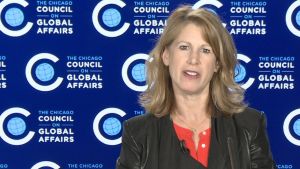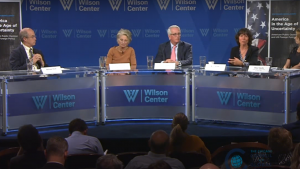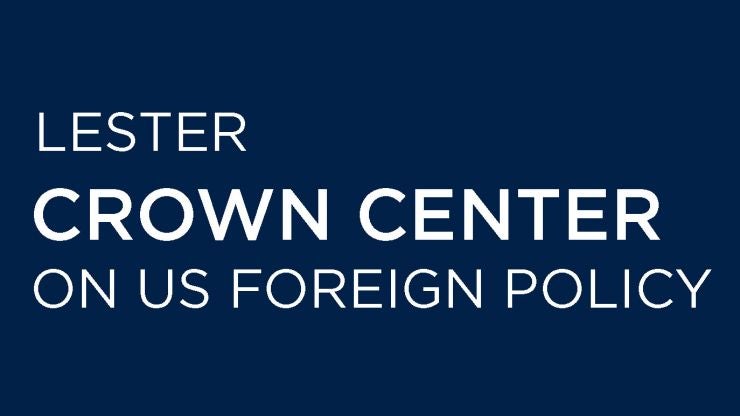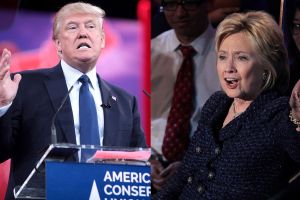Over the past year, Donald Trump has been able to channel the anxieties of a significant segment of the American public into a powerful political force, taking him to the doorstep of the White House.
America in the Age of Uncertainty
Executive Summary
Over the past year, Donald Trump has been able to channel the anxieties of a significant segment of the American public into a powerful political force, taking him to the doorstep of the White House. These public anxieties stem from growing concerns about the effects of globalization on the American economy and about the changing demographics of the United States.
Although Trump has been able to mobilize many of those who are most concerned about these developments, their motivating concerns are not new. They existed before Donald Trump entered the race, and they are likely to persist even if he loses the election in November 2016. Yet, uniquely among the candidates running for president this cycle, Trump has given voice to this group of Americans, notably through his tough stances on immigration and trade.
At the same time, while this segment of the American public has given Donald Trump traction in the presidential race, his views on important issues garner only minority support from the overall American public. While they are divided on expanding a wall on the US border with Mexico, Americans overall support continued immigration into the United States and favor reform to address the large population of unauthorized immigrants already in the country. Americans overall think globalization is mostly good for the United States, and they see many benefits to free trade. And the American public as a whole—including the core supporters of Donald Trump—still favors the country’s traditional alliances, a shared leadership role for the United States abroad, and the preservation of US military superiority.
Trump’s Core Support Is Based on Immigration and Trade
Trump’s rhetoric on immigrants and refugees has most clearly struck a chord with his base. On each and every question concerning immigration, Trump’s core supporters are the least favorable. An overwhelming majority of core Trump supporters agree that immigration is a critical threat to the United States— almost double the percentage among the general public (43%). Six in ten Trump supporters believe that illegal immigrants in the United States should be forced to leave their jobs and the United States (63%). And nine in ten Trump supporters support expanding the wall on the border with Mexico (92%). The public overall is divided on expanding the wall, and 58 percent support a pathway to citizenship for illegal immigrants.
Core Trump supporters express similar levels of fear about Islamic fundamentalism as Republicans among the general public. However, they are more unfavorable than other Republicans in their views of Middle Eastern immigrants and are less likely to favor admitting refugees from Syria into the United States.
Concerns about immigration reinforce economic worries, which are also reflected in the views of core Trump supporters. Trump backers are the least likely to support globalization and to say that free trade has been good for the US economy, for consumers like them, or for their own standard of living. They are also least likely to support the Trans-Pacific Partnership trade deal and the most likely to say the next generation of Americans will be economically worse off than adults today.
Negative Feelings toward Immigration and Trade Are Not New and Do Not Reflect the Majority View
While Trump supporters are the most stridently opposed to immigration and are the least likely to support free trade today, these sentiments are not new. Nor are they the majority viewpoint among Americans, who generally support both immigration and trade.
The Chicago Council results reflect partisan differences on these issues over many seasons. Since 1998, a majority of Republicans have consistently said that immigration is a critical threat to the United States, which, at 67 percent, is at a peak today. In contrast, beginning in 2002, Democrats’ concerns about immigration steadily decreased, with just 27 percent of Democrats saying it poses a critical threat in 2016. Given this wide disparity, only a minority of Americans (43%) see immigration as a threat to the United States. And an overall majority of Americans say that illegal immigrants currently working in the United States should be allowed to stay and pursue a path to citizenship (58%).
Similarly, since 2008, Republicans have consistently expressed more negative views than Democrats on globalization and trade. While the gap between Republicans and Democrats on support for globalization has grown from four percentage points in 2006 to 15 percentage points in 2016, this should not detract from the fact that overall two in three Americans continue to favor globalization.
Role of the United States in the World
While Trump’s views on immigration and trade clearly resonate with his core supporters, some of his other criticisms of US foreign policy are less popular among his base. For example, core Trump supporters are somewhat more cautious than other Americans of alliances and an active US role in world affairs, but in most cases they continue to favor international engagement. This serves as a reminder that despite divides on issues such as immigration and trade, the American public finds a great deal of common ground on American leadership in the world and how to achieve American goals.
Conclusion
Future political candidates may not be able to recreate Trump’s success in conveying the public’s grievances, but the political winds that have brought Trump to the edge of the presidency will persist. Therefore, it is crucial to understand what these grievances suggest about the United States. Economic recovery has been uneven. The breadth and pace of diversity is increasing, creating discomfort among some segments of American society—especially among those most isolated from these changes.1 And many Americans find themselves affected by decisions made by people who do not seem to take their views or anxieties seriously.
The changing demographic makeup of America will likely transform the political dynamics, given that younger and non-white Americans are more supportive of globalization, immigration, and increasing ties to the world. But in the near term, the attitudes and opinions that brought Trump to the fore of American politics will remain—and could very well strengthen.
Methodology
This report is based on the results of a survey commissioned by the Chicago Council on Global Affairs. The 2016 edition of the survey is the latest effort in a series of wide-ranging surveys on American attitudes toward US foreign policy. The survey was conducted from June 10 to 27, 2016, among a representative national sample of 2,061 adults. The margin of sampling error for the full sample is ±2.38, including a design effect of 1.2149.








Related Videos
Explore related video content about the 2016 Chicago Council Survey.
 Play Video
Play Video
Watch Council senior fellow and report author, Dina Smeltz, break down the key report findings:
 Play Video
Play Video
Watch experts discuss what the findings mean for the future of US foreign policy.




